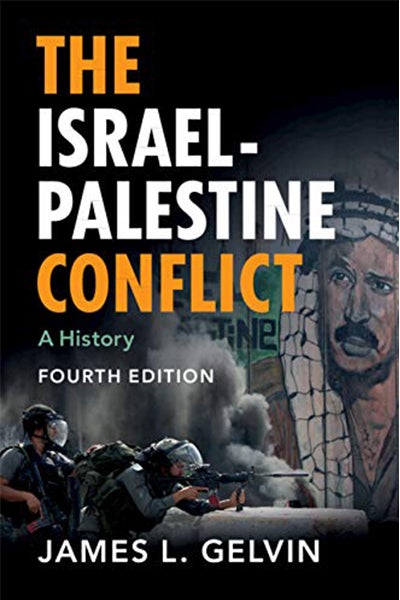Reviewed by Emil Mathew Binny, School of Business
James L. Gelvin's The Israel-Palestine Conflict: A History is a thorough and insightful examination of one of the most protracted geopolitical conflicts of the modern era. With academic precision and narrative fluency, Gelvin tries to cover this enduring conflict's complex origins and developments. His text spans the nationalist fervor of the late 19th century to the pressing issues that continue to trouble contemporary discourse.
The book examines the centrality of land and sacred places in constructing Muslim, Jewish, and Christian identities, which are a fulcrum for the entangled nationalistic fervor. Gelvin delineates the emergence of both Zionist and Palestinian national movements with a judicious portrayal of the historical and sociopolitical forces molding their paths. This backdrop provides context for the nuanced portrayal of both movements' evolution, particularly during the First World War and the British Mandate. Gelvin's account is based on biographical and eyewitness accounts, official documents, and art, such as poetry. Gelvin's analysis offers a meticulous unpacking of the conflict's historical underpinnings. His exploration of the cultural and symbolic facets of nationalism adds a rich layer to the understanding of both sides' motives. Notably, Gelvin argues that the conflict is primarily one of dueling aspirations for self-determination and nationhood occurring on the same piece of "real estate." The book's examination of cultural revivalism, the struggle for international legitimacy, and the socioeconomic dynamics at play provide readers with a well-rounded understanding of the historical complexities.
While Gelvin's commitment to balance is evident, I believe that his attempt to provide equal weight to each side's narrative could potentially obscure the unique sufferings and specific contexts of each. Also, in his quest for impartiality, the emotional resonance and lived experiences of individuals on the ground may be underrepresented, which is quite important in an ongoing conflict. Additionally, while valuable for academic discourse, his scholarly detachment might not fully capture the reality of the conflict, something that more narrative-driven accounts accomplish. Nevertheless, The Israel-Palestine Conflict: A History contributes significantly to academic and public discourse, serving as a foundational resource for anyone seeking a deeper understanding of the conflict's intricacies. Gelvin's balanced analysis enhances the text's educational value, prompting readers to engage with the conflict's ethical and political complexities critically. The book illustrates the complexity of conflict marked by the interplay and reconfiguration of religion, nationalism, resources, and local and global politics over time. The book argues that addressing conflicts and building religious pluralism requires an in-depth appreciation of the forces at play.
In sum, the book is a commendable scholarly endeavor, offering a balanced "interpretive" exploration of the Israel-Palestine conflict that is both informative and accessible. Despite its potential shortcomings in capturing the conflict's emotive aspects, it is an essential contribution to Middle Eastern studies. It remains a pivotal text for those invested in the discourse surrounding Israeli and Palestinian narratives about the conflict.
Gelvin, J.L. 2021. The Israel-Palestine Conflict: A History (4th edition). Cambridge: University of Cambridge Press.

